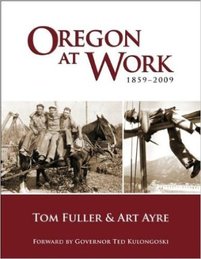
Ever wonder if your line of work was important in early Oregon? What sorts of employment opportunities were available to our ancestors? Was your occupation even imagined in 1859? I know mine were not even a glimmer in some eccentric inventor's eye: historic preservation specialist? internet blogger? radio host? What a hoot! On the other hand, I feel certain that the majority of us do not possess the "skill set" to be successful in the most important trades of those early days: trailblazer, wagon driver, land-clearing farmer, tree faller, log cabin builder, blacksmith, fur trapper/trader, securing food on your own, providing protection from hostile attacks, and many other "survival skills" that are not as necessary in today's world.
| Tom shared some of his favorite stories and photos from the book with us today. One was about Ada Bell, a 16-year old young woman who was hired in 1897 to be a teacher, one of the few jobs available for women at the time, in the town of Bakeoven in eastern Oregon. Scared, cold, and penniless, no town folks came to meet Ada at the stagecoach and she was forced to find her own way to her lodging and the schoolhouse where she was to teach the children of the immigrant German and Swiss homesteaders and shepherds how to become Americans. She taught there until the end of the school term in July 1901. |
One of the men Wilson hired to help with his farming operation was none other than Wiliam Eads, considered quite a controversial act in pre-Civil War Oregon. Wilson was a strong opponent of slavery (as was Jesse Applegate) and had come to Oregon as a result of an argument with his father over the sale of a slave he considered his friend. Eads soon became accepted as a member of the Wilson family and was buried in the Wilson Family plot when he died in December 1900.
| William Hunt Wilson was elected to serve as the Umpqua County representative in the second regular session of the Oregon Legislature in 1862. Jesse Applegate's brother Lindsay represented Jackson County in that same 40-day session, where they both served on the Military Affairs Committee. The contentious subject of slavery was paramount. William and his colleagues were urged to pass laws designed to prevent "Negroes and mulatoes [sic] from coming into the state." Wilson's group was successful in defeating that bill. Unfortunately, they were not successful in defeating another bill that placed a $5 tax on all blacks, Chinese, Hawaiians, and mulattos. Wilson paid this tax for his friend William Eads but he never returned to state politics. His friendship with the Applegates and his staunch anti-slavery views continued until his death in 1902. As a small world note, Wilson's son, William W. Wilson, is also the grandfather of our program engineer, Jim Wilson--another historic connection to our modern lives. |
Over the coming year, we plan to highlight several of the long-term businesses in the mid-Willamette Valley area, speaking with family members about the heritage of their family business and their plans for the future. We hope you will join us as we explore another factor of our historic legacy.
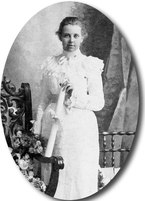
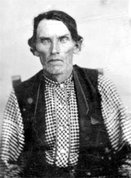
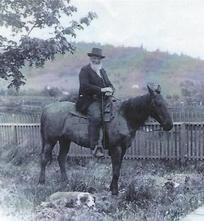
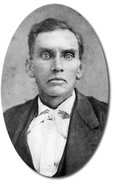
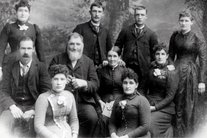
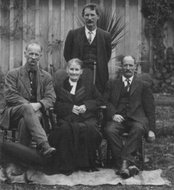


 RSS Feed
RSS Feed